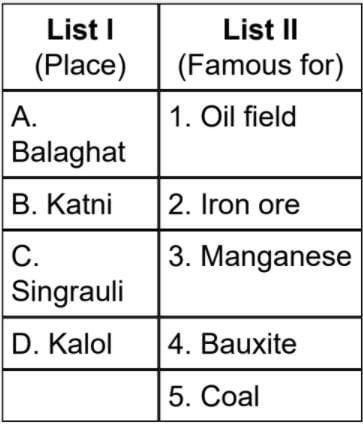Test: Mineral & Energy Resources - UPSC MCQ
30 Questions MCQ Test - Test: Mineral & Energy Resources
Which one of the following is a fossil source of energy?
Match List-I with List-II and select the correct answer using the
codes given below.
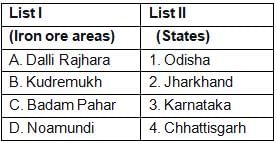

Consider the following statements about the mining
industry of India
1. The spatial distribution of minerals is uneven.
2. The mining industry since colonial days has been export-oriented.
Which of the statements given above is/are correct?
The state of India having almost a monopoly in the production of chromite is
The largest reserve of crude oil in India is found in
Which one of the following states has higher potentials for solar energy?
Consider the following coal mines of India :
1. Bokaro
2. Adilabad
3. Raniganj
4. Bishrampur
Select the correct sequence of the above from east to west.
Which one of the following districts does not have a goldfield?
Which one of the following oil fields of India is the oldest and still producing oil?
In which one of the following is a higher percentage of carbon found?
In the map given below four petrochemical centres are marked with numbers. Match them with the following four places and select the correct answer using the code given below
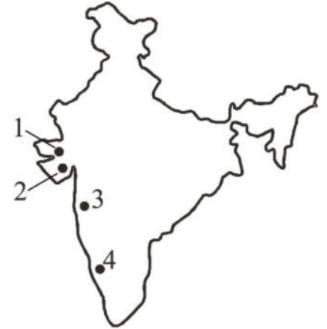
A. Koyali
B. Trombay
C. Jamnagar
D. Mangalore
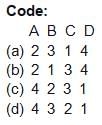
Match List-I with List-II and select the correct answer using the
code is given below the list.
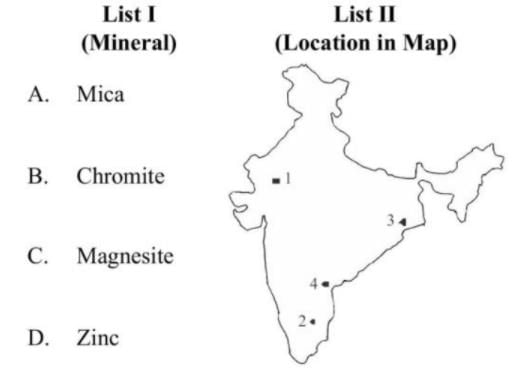
A B C D
(a) 1 2 3 4
(b) 1 3 2 4
(c) 4 2 3 1
(d) 4 3 2 1
Which metal is found at the following places-Hutti, Kolar and Ramgiri in India?
Which one of the following combinations of the districts, shows the correct sequence of magnesite deposits in Uttarakhand?
Which one of the following groups of states accounts for about 90% of the annual coal production in India?
Consider the following statements—
1. Balaghat is known for its diamond mines.
2. Majhgaon is known for its manganese deposits.
Which of the statements given above is/are correct?
At which of the following places the Copper Industry is located?
Which of the following Iron ores is mined at Bailadila?
Which one of the following is not true regarding the importance of manufacturing industries?



